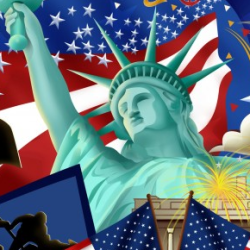Disunity Fractures US Online Gambling Industry

More than half year after Las Vegas Sands CEO Sheldon Adelson announced his crusade against online gambling, the 80 year-old billionaire appears to have succeeded in bringing potential legalization to a grinding halt in the USA, with regulation having not advanced either on a federal or state level. In addition to Adelson’s orchestrated attempts to stymy igaming regulation, the casino magnate is also benefiting from an overall lack of cohesion in the nascent industry.
High expectations after three states adopted regulation
Nevada became the first US state to adopt a regulated online poker industry after Ultimate Poker launched in April 2013. By November the state was joined by Delaware and New Jersey, thus firing a warning shot across the bow of anti-online gambling proponents, whilst portending of a surge in interest from other states. Naturally it was assumed that huge revenues and tax receipts would soon have these other states queing up to join the igaming gravy train, especially with predictions like the one made by New Jersey Governor Christie forecasting $1 billion in revenue and $180 million in taxes by the end of year one.
Those inflated figures have now been shown to represent roughly just one tenth of actual revenues, which subsequently has been having a profound effect on discouraging other states from embracing online poker to solve their budget problems. Although there are many possible reasons for the lackluster results, one of the most ominous is one suggested by Charles Coppolani, the new President of French online gaming regulator ARJEL, who said:
“The fad is over. Basically, the online poker market may be mature.”
California online gambling’s biggest prize
While in April online poker generated a mere $74k in Delaware, $792k in Nevada and $2.6 million in New Jersey, the country’s biggest and most affluent state of California represent the ‘jewel in the crown’ of the US online poker market, with around $2.2 billion being spent each year on unlicensed, unregulated poker websites.
Nevertheless, California‘s attempts to pass online poker regulation has thus far produced no results as competing tribal interests derail progress in their efforts to exclude companies such as PokerStars from a potential future igaming landscape. In fact, this week 13 of California’s most influential tribal gaming interests sent a unified online poker bill to the California legislature, complete with a “bad actor” clause basically looking to dissolve the partnership already agreed between the Morongo Band of Mission Indians and PokerStars.
Naturally the unified tribe’s stance automatically drew a strong reaction from the Morongo tribe, which responded with a warning that, “Efforts by a select few interests to rewrite longstanding and effective policy in order to gain a competitive market advantage or to lock out specific companies is not in the best interests of consumers or the state and will be vigorously opposed by our coalition, online poker players and many others.”
Needless to say California is a long way off from reaching a consensus leading to a regulated online poker market.
Adelson seizes the momentum
As America struggles to adopt a unified approach to online poker regulation, Sheldon Adelson has steadily been working towards dismantling the nascent industry, describing it as “a toxin which all good people ought to resist” and promising to spend “whatever it takes” to succeed. Not only has Adelson been instrumental in orchestrating the “Restoration of America’s Wire Act” introduced by U.S. Senator Lindsey Graham (R-South Carolina) and Congressman Jason Chaffetz (R-Utah), but Adelson has successfully managed to persuade the American Gaming Association (AGA) to withdraw its backing for online gambling.
Adelson managed to do this by forcing a wedge between Las Vegas Sands on one side and MGM Resorts and Caesars Entertainment on the other, which subsequently not only halted the AGA’s advance on Capitol Hill, but also seems to have frozen efforts to support internet gambling on a state level, too. As MGM Resorts Chairman Jim Murren, explained recently:
“I don’t want the AGA to find itself mired in a tremendous amount of controversy and infighting. I feel like the Internet has become too divisive a topic when there are so many other topics we want to put forward where we can all agree.”
Online poker a fractured industry
In addition to a myriad of other factors holding back online poker in the USA, even a widespread state-by-state regulated industry could fail as the absence of a uniform online gambling model will likely lead to inefficiencies in the individual markets which only an integrated country wide industry could address. As gaming analyst Gil White from Herzog Fox & Neeman, explained this week:
“Eventually this will creak and break down. Companies will not be able to invest the millions of dollars they invested in Nevada and then did again in New Jersey. In the internet world, the margins are not big enough for that to work.”
Therefore, online gambling continues to be a fractured affair in the USA and in the absence of a unified approach to igaming the post-Black Friday landscape is likely to remain a mere shadow of its former potential for some time to come.










